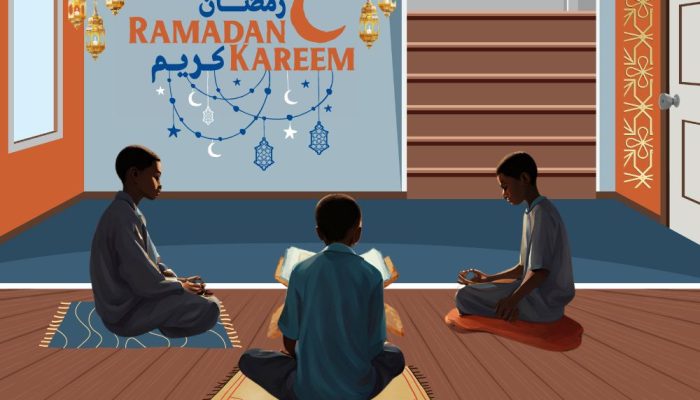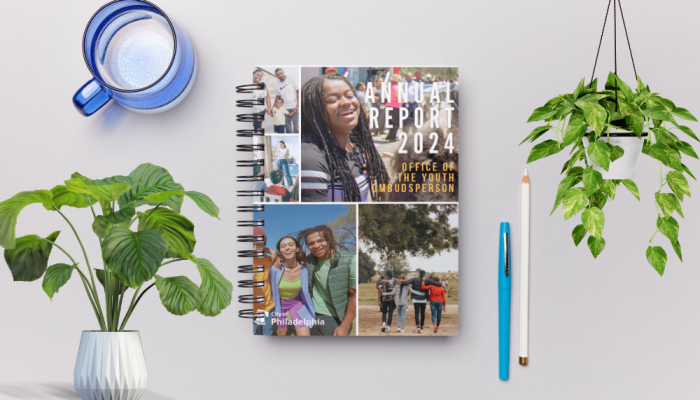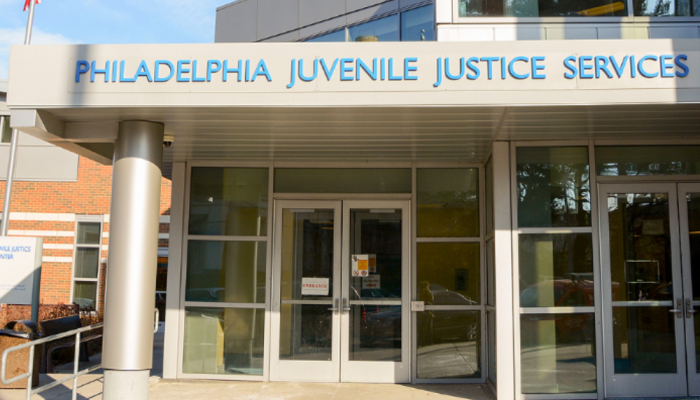Ramadan in Placement: How Facilities Can Support Observing Youth
As Ramadan approaches this year, I find myself reflecting not just on the rituals of fasting, prayer, and spiritual renewal, but on the world around us. This holy month is a time to pause, reset, and ask ourselves how we are showing up—for our communities, for justice, and for those in need.
For Muslim youth in residential placement, Ramadan presents unique challenges. I remember my own time in placement, navigating daily programming while fasting, struggling to find space for prayer, and working to stay spiritually grounded in an environment that often didn’t accommodate my faith. Yet, in those moments, there were bright spots. Supportive staff, both Muslim and non-Muslim, helped create an environment where I could observe Ramadan with dignity. That support left a lasting impact—one that extended beyond Ramadan itself.
These experiences aren’t just my story; they reflect a broader reality. How can residential facilities ensure that Muslim youth—along with all youth—feel seen, supported, and empowered to practice their faith? And how can we move beyond basic compliance to actively foster a supportive, affirming space for religious observance?
The Spiritual Significance of Ramadan
For Muslims, Ramadan is a sacred month described in the Qur’an as “the month in which the Qur’an was revealed as a guidance for mankind” (Qur’an 2: 185). This year, Ramadan is expected to begin on the evening of February 28, 2025, depending on the sighting of the crescent moon, a tradition marking the start of the Islamic month of Sha’ban. It lasts 29 or 30 days, it is a time for spiritual growth, self-discipline, and deepening empathy for others.
From dawn (Fajr) to sunset (Maghrib), Muslims fast, abstaining from food, drink, and other acts that invalidate ones fast. Beyond fasting, Ramadan emphasizes prayer, charity, and self-reflection, all rooted in the Five Pillars of Islam, with special nightly prayers called Taraweeh, where portions of the Qur’an are recited. The month ends with Eid al-Fitr, a celebration of gratitude and generosity, where Muslims give to those in need and gather with loved ones.
Practical Suggestions for Facilities
Muslim youth in residential placements face challenges observing Ramadan and Eid al-Fitr, from fasting logistics to missing communal celebrations. Facilities must take intentional steps to support their faith with dignity and inclusivity. Recognizing their diverse backgrounds and the centrality of Islam to their identity ensures meaningful accommodations. The following approaches offer practical solutions.
1. Provide Meal Accommodations
Each day of Ramadan begins before dawn with suhoor, a meal of energy-sustaining foods like dates, bread, yogurt, and water. Fasting starts at dawn with the Fajr prayer, during which Muslims abstain from food, drink, and other physical needs, focusing on prayer, reflection, and charity. The fast ends at sunset with the Maghrib prayer, traditionally breaking with dates and water before the iftar (post-sunset) meal.
Given that there is such an emphasis on when and what youth eat and drink during Ramadan, facilities can take the following steps (when appropriate for the specific type of facility):
- In settings where youth can prepare their own meals, consider providing youth with the flexibility to prepare the suhoor and iftar meals and/or offer culturally appropriate, halal options that meet their dietary needs.
- For secure placement settings, consider adjusting dining hours to accommodate suhoor (pre-dawn) and iftar (sunset) meals, ensuring access to nutritious, high-protein foods to support fasting.
2. Support Religious Practices
Supporting religious practices is critical to affirming a youth’s identity and well-being. Facilities should:
- Be mindful that youth may more openly express their religious beliefs during this sacred month, do not discourage them or challenge the authenticity of their beliefs.
- Allow youth to wear religious or cultural attire, such as hijabs (headscarves) or thobes (traditional robes), as long as it aligns with safety policies.
- Designate private, quiet spaces for daily prayers during Ramadan, including Taraweeh.
- Facilitate virtual khutbahs (sermons) or invite local imams to support youth who cannot attend congregational prayers.
- Adjust schedules to allow for adequate rest during the day and flexibility for evening worship or activities.
- Develop clear policies that encourage religious expression, balancing cultural accommodations with safety and operational considerations.
- Ensure access to religious texts and materials, fostering a supportive environment for spiritual growth.
3. Educate Staff on Ramadan Practices
Staff training is essential to create an inclusive environment for youth observing Ramadan. Facilities should:
- Provide cultural competency training on the significance of fasting, prayer, and other religious practices, emphasizing empathy.
- Educate staff on how physical fasting impacts energy levels, encouraging accommodations like modified activity schedules during fasting hours.
- Be aware that observing youth will need to access the bathroom more frequently and at various times of the day and evening to perform “Wudu” (cleansing ritual) before offering prayer.
4. Foster Connection and Community
For youth in placement, replicating Ramadan’s communal aspects can be challenging due to limited family contact, restrictive schedules, and lack of facility awareness. Recognizing these barriers and fostering a sense of belonging can greatly improve their experience. Facilities should:
- For non-secure settings, organize group iftar meals or small peer gatherings for those fasting, creating opportunities for connection.
- Partner with local masjids, Muslim organizations, or mentors to offer spiritual guidance, provide a sense of shared faith, and create opportunities for youth to connect with their faith community.
- Recognize the emotional impact of isolation and offer regular check-ins with counselors or mentors to provide support.
- Consider celebrating milestones like completing fasting days or marking Eid al-Fitr with small gifts or traditional foods. While celebrations may not align with juvenile detention operations, group homes can adapt these practices to promote inclusion and community.
Muslim youth in placement must be allowed to observe their faith with dignity, even within the structured environments of residential placement facilities. Not only because it can have a powerful impact on youth, but also because youth are legally allowed to do so.
Legal Protections and Youth’s Religious Rights
Youth observing Ramadan must be free to practice their faith without pressure, judgment, or retaliation. Residential placements must uphold their religious rights, protected by state and federal regulations. In Pennsylvania, these protections include:
- Freedom to Practice Religion: Youth have the right to practice the religion of their choice or to abstain from practicing any religion. Discrimination based on religious creed is strictly prohibited. (Pa. Stat. Tit. 11, § 2633; Admin. Code Title 55, § 3800.32)
- County Agency Responsibilities: County agencies must provide opportunities for youth to participate in religious activities, services, and counseling in alignment with the preferences of the youth or their families. Additionally, agencies must ensure that visitation between youth and parents occurs no less than once every two weeks, barring court orders, safety concerns, or written refusal by the parents. (Admin. Code Tit. 55, §§ 3130.68, 3130.86)
- Grievances and Complaints: Youth have the right to file grievances if they feel that their religious rights are being violated. Agencies are required to have clear grievance policies in place to address such concerns. (55 Pa. Code 3800.31(e) – ch. 3800)
Call To Action
Religious observance is a deeply personal experience, yet for many youth in placement, it comes with added challenges. Understanding these experiences is the first step in ensuring that no young person feels isolated or unable to practice their faith.
The Office of Youth Ombudsperson (OYO) works to ensure that youth in placement can observe their faith without unnecessary obstacles. Many staff and facility leaders already take steps to support religious practices, by providing space for prayer, adjusting meal-times, or fostering an environment of respect and understanding. Their efforts make a lasting impact. Struggling facilities can look to these best practices as a roadmap for meaningful change.
Beyond placement settings, Muslim youth in schools, education centers, and other facilities may also need better support. The Mayor’s Office of Muslim Engagement (OME) has developed a Ramadan Ready Toolkit, which offers practical steps and culturally competent insight for institutions looking to better accommodate observing youth.
Change happens when awareness turns into action, reminding us of the responsibility we all share in fostering understanding and support for young people in care. Every effort—big or small—can help ensure that no young person has to choose between their faith and their well-being.
If you or someone you know is experiencing barriers to religious observance, unfair treatment, or unsafe conditions in placement, OYO provides a confidential online process to file a complaint. Each report is carefully reviewed, and we work to promote fair and constructive solutions.




